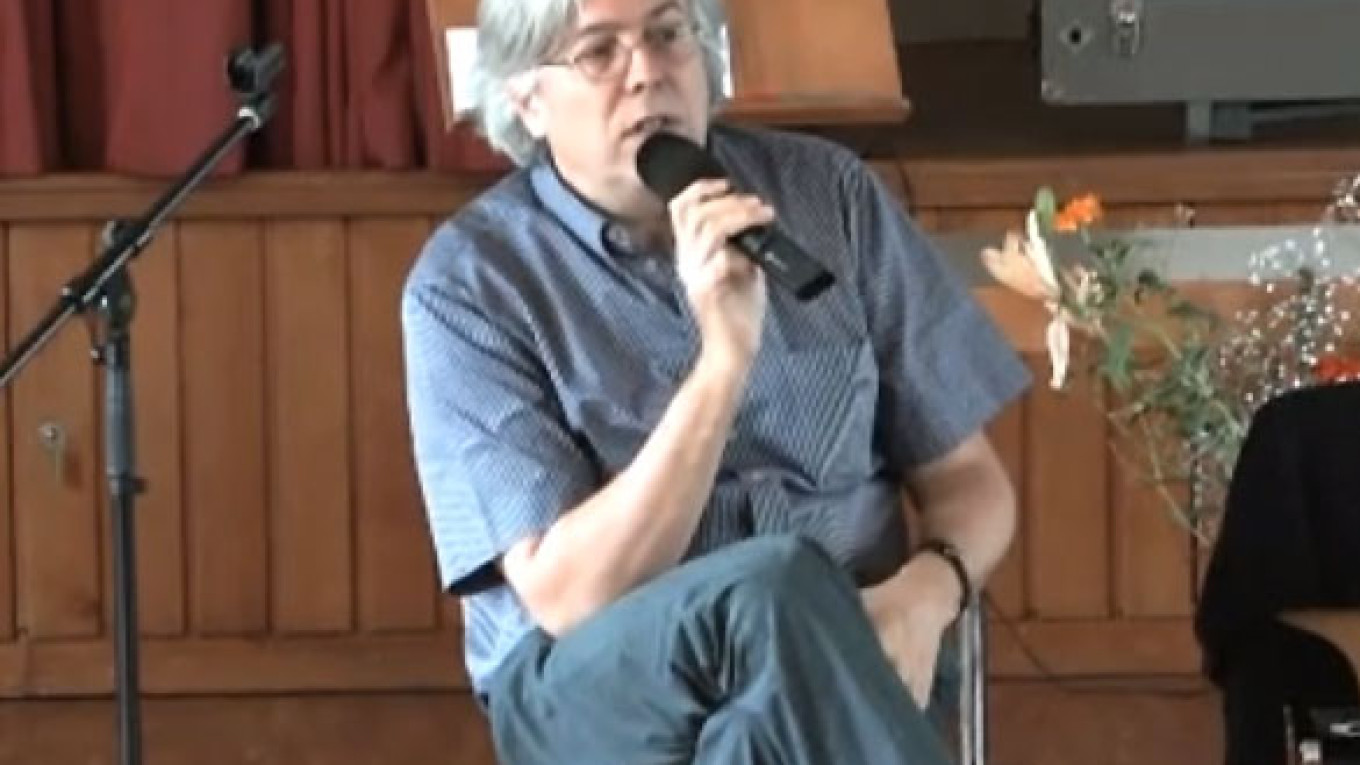The Parliamentary Assembly for the Council of Europe, or PACE, voted overwhelmingly on Tuesday to approve a resolution critical of Russia for its handling of the investigation into the death of Sergei Magnitsky, over the fierce objections of Russian lawmakers present for the vote.
By adopting the resolution, which was titled "Refusing Impunity for the Killers of Sergei Magnitsky," PACE "urged the Russian authorities to fully investigate the circumstances and background of Magnitsky's death, and the possible criminal responsibility of all officials involved," PACE said in a statement after the resolution was passed.
"The Assembly resolved to follow closely how its proposals are implemented," PACE said, adding that the Council of Europe should enact U.S.-style "targeted sanctions" against individuals implicated in Magnitsky's death "if the competent authorities in Russia fail to respond adequately to its demands within a reasonable period of time."
Magnitsky, a lawyer who uncovered a $230 million embezzlement of state funds that he said was carried out by Russian officials, died in a Moscow prison in 2009 after being jailed by those he had accused of the crime. His death sparked an international outcry, and in late 2012 the U.S. passed a law punishing Russians implicated in the Magnitsky case with visa bans and asset freezes. Russia responded with a reciprocal law targeting alleged U.S. human rights violators.
The PACE resolution, which passed 151 to 25, was based on a report authored by Andreas Gross, the Swiss representative to PACE and the body's rapporteur on the Magnitsky affair. Russia had fought to oppose the resolution, and Alexei Pushkov, head of the Russian delegation to PACE, voted against its inclusion on the assembly agenda.
On Tuesday, Russian delegate Leonid Slutsky criticized the Gross report as lacking objectivity and containing inaccuracies.
"The topic of Magnitsky's death has been hugely politicized," Slutsky said during the PACE session, Interfax reported. "It is no longer about Magnitsky but about the defamation of Russia. We cannot support … recommending this report to the [Council of Europe] Committee of Ministers, since the Committee of Ministers is supposed to work on human rights, rule of law and democracy, and not a search for missing funds."
The report found more supporters among other delegates, however. The PACE statement said that Gross' "detailed analysis of Magnitsky's death in pretrial detention in Moscow in 2009" was well-received by the parliamentarians, who "said they were 'appalled' by his death, and by the fact that none of the persons responsible have yet been punished."
The resolution referenced the findings of a medical report from the International Forensic Program of Physicians for Human Rights commissioned in support of an appeal to the European Court of Human Rights to take up a claim against the Russian government by Magnitsky's mother.
The report found that ultrasounds taken on July 1, 2009, clearly showed that Magnitsky was suffering from pancreatitis. "The diagnosis is quite obvious and easy to make. Any practicing clinical physician would have been able to see this from the ultrasound examination and address the problem by surgically removing the gallbladder," the report said.
The forensic report's conclusion was that "the decision by the authorities at Matrosskaya Tishina prison to physically restrain Magnitsky, keep him in a cell for two hours, while denying standard medical treatment, resulted in his death."
The PACE report was written after a series of fact-finding missions led by Gross to Moscow, London, Cyprus and Bern. The report also detailed the circumstances of Magnitsky's death and the alleged $230 million tax fraud he uncovered.
The Gross report was first presented in June when PACE decided to solicit input and testimony from all interested parties. It was approved by PACE's human rights committee in September, and though it stopped short of recommending targeted visa bans against individuals implicated in the case — which was viewed as "a means of last resort" — it encouraged "the Russian authorities to hold to account those responsible for the death of Magnitsky and to fully investigate the crime he had denounced, in the interest of Russia and all her hardworking and tax-paying citizens."
The report went on to request that Russian authorities explain abnormalities in the case such as "the unavailability of CCTV footage of the arrival of Magnitsky to Matrosskaya Tishina prison on the day of his death" and "the existence of two different versions of [Magnitsky's] death report."
Gross conducted extensive interviews, reaching out to officials in Russia, Cyprus and Switzerland, Magnitsky's relatives, and William Browder, the head of Hermitage Capital, who was co-convicted with Magnitsky in a tax evasion case brought against Magnitsky posthumously. The report also cites news articles and government documents.
Russia, a member of the Council of Europe, has accused PACE of harboring anti-Russian attitudes in recent years as it has increasingly come under fire for its human rights record. The European Court of Human Rights frequently rules against Russian citizens who bring cases before the court.
Contact the author at [email protected]
A Message from The Moscow Times:
Dear readers,
We are facing unprecedented challenges. Russia's Prosecutor General's Office has designated The Moscow Times as an "undesirable" organization, criminalizing our work and putting our staff at risk of prosecution. This follows our earlier unjust labeling as a "foreign agent."
These actions are direct attempts to silence independent journalism in Russia. The authorities claim our work "discredits the decisions of the Russian leadership." We see things differently: we strive to provide accurate, unbiased reporting on Russia.
We, the journalists of The Moscow Times, refuse to be silenced. But to continue our work, we need your help.
Your support, no matter how small, makes a world of difference. If you can, please support us monthly starting from just $2. It's quick to set up, and every contribution makes a significant impact.
By supporting The Moscow Times, you're defending open, independent journalism in the face of repression. Thank you for standing with us.
Remind me later.


